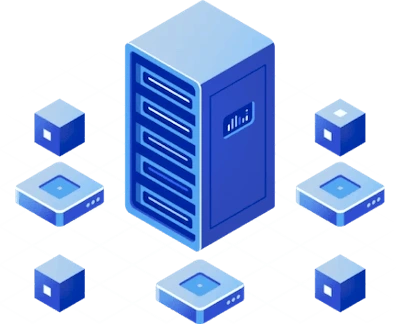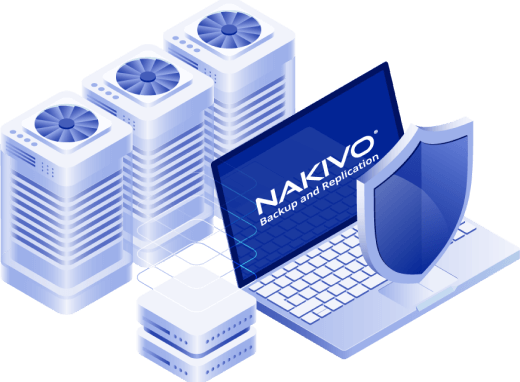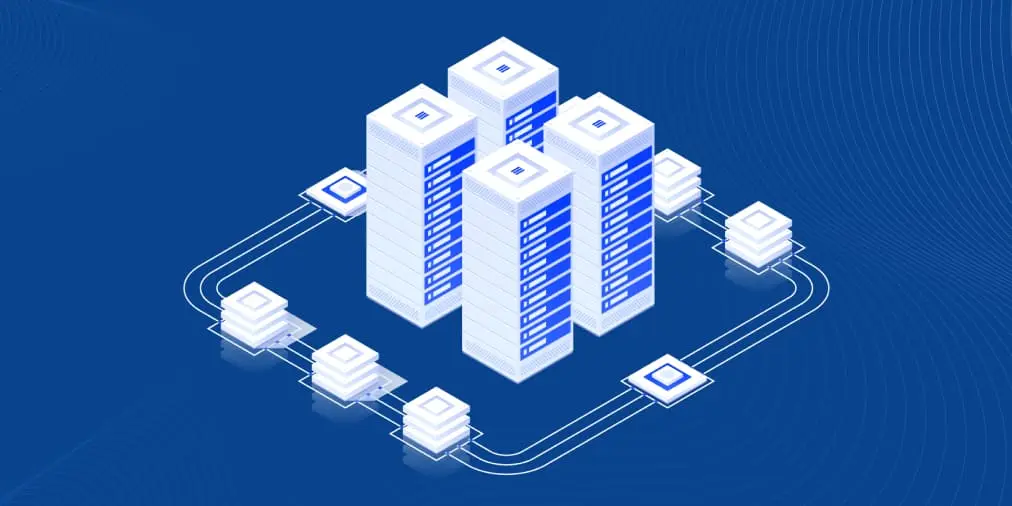Tape Backup Advantages That Make It Still Relevant
Modern businesses are data-driven, meaning that data is a critical asset of any organization, and it should be protected at all costs. For this purpose, various data backup strategies can be used, including backup to tape, disk backup, or cloud backup. In today’s blog post, we are going to discuss why tape backup can be considered an effective approach to data protection and how it can satisfy your business needs.
Tape backup advantages include the following:
- Capacity
- Cost
- Scalability
- Longevity
- Efficiency
- Portability
- Security
Moreover, you need to learn the best tape backup practices to implement, and discover how NAKIVO Backup & Replication can protect your virtual environment.
What You Should Know about Tape Backups
Tape backup is the process of backing up critical data to a tape cartridge. A tape drive is one of the oldest data storage devices which allows for reading and writing data on a magnetic tape. Even though most organizations have since switched to disks or cloud storage devices for their primary storage, tape is still widely used for backup and recovery purposes.
A tape drive allows for sequential access storage, while a hard disk drive provides direct access storage. Sequential access implies that you can access required data only in a predetermined sequence. In simple terms, you must move the tape’s ribbon forward or backward to get to the place where the needed information is stored. With direct access, each piece of data has a unique address assigned to it, thus allowing you to access information directly and in a matter of seconds.
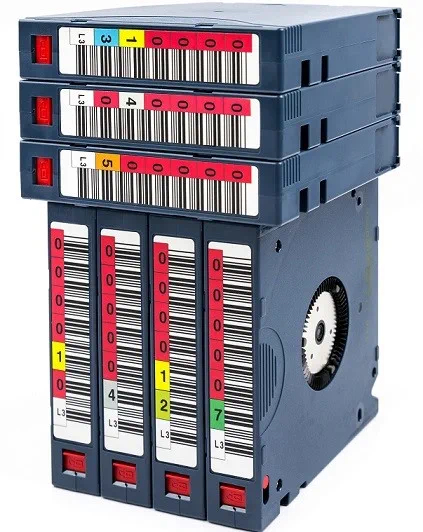
Tape drives are more likely to be used alongside disk-based or cloud storage, thus allowing you to enjoy the benefits of different backup media. However, you need to clearly understand when and how tape backups should be used in order to achieve the best results.
Tape is widely used by large enterprises as offline backup storage. Due to their longevity and portability, tape devices can store large amounts of data offline and ensure long-term archival stability. Tape backups are the best option when you have large amounts of rarely accessed data which needs to be retained for a long period of time. As for frequently accessed data, it should be readily backed up and recovered on demand. In this case, disk-based or cloud storage is the optimal choice.
Tape Backup Advantages
Tape drives have been used for data storage since the 1950s. Even though their popularity has fluctuated over the years, tapes have still remained relevant in modern data centers. The main reason behind this is the tape backup advantages which will be discussed below.
Capacity
The first tape backup advantage is the large storage capacity that tape devices can provide. Storage capacity of the modern tape medium is constantly being increased in order to meet growing data demands. With tapes, you can get access to a high-capacity storage which comes in a rather small physical package. This way, you don’t have to take the burden of building a separate backup facility and purchasing additional equipment to maintain tape backups.
Cost
Compared to disk or cloud backups, tape backups can be considered a highly affordable option when it comes to its cost per gigabyte. Moreover, tape drives allow you to create an offline data storage, which costs less in terms of support and maintenance.
In some cases, tape backup is considered the most cost-efficient way of storing large amounts of legacy data. In terms of time and money, it would be impractical to first convert legacy data into an appropriate format and then transfer that information from the tape cartridge to a new medium.
Scalability
Another tape backup advantage worth mentioning is scalability. You can easily scale the tape backup infrastructure through buying new tape drives and adding them to the tape library. On the other hand, if you want to grow the capacity of disk-based storage, you will have to buy additional hardware, which can be quite expensive.
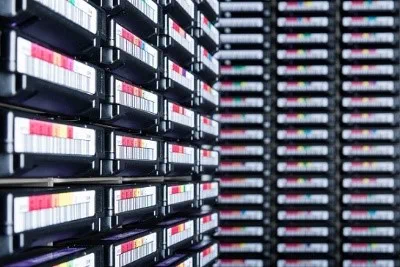
Longevity
Longevity of tapes is the main reason why tape backups are still widely used by large enterprises. If maintained properly, tape drives can store required data for 30 years or even more. As a result, tape backups can offer long-term retention of critical data and ensure high archival stability.
Efficiency
Disk or cloud storage devices are normally used for storing data which needs to be accessed frequently and rapidly. Therefore, such devices need to operate on a 24/7 basis so as to perform regular data backups and ensure successful disaster recovery if needed. Due to this, disk storage is considered one of the primary sources of energy consumption in modern data centers.
Tape backup storage, on the other hand, is primarily used for data archiving due to its capability to store data offline. Tape drives operate only when data is being read or written to them. Thus, tape drives run on an as-needed basis, meaning that they consume less power and generate less heat than disk storage devices.
Portability
The next important tape backup advantage is portability. After writing data to tape cartridges, you can simply pick them up and transport these tape backup units to an offsite location. In case of any potential threat to your tape storage facility, you can easily collect tapes and transport them to a more secure location. To secure data from cloud or disk storage spaces, you will have to transfer large amounts of data over the network to a new backup site. Such operations can take a lot of time, which is extremely valuable during a disaster recovery (DR) event.
Security
What makes tape backup a lucrative option for many organizations is that it can protect data against ransomware or malware. Tape backups are stored offline, meaning that the tape storage device gets disconnected from the system once the backup operation is complete. Thus, if the tape cartridge is not connected to the system, attackers cannot get hold of data and corrupt it. In this case, tapes are more effective than cloud storage, which operates online and is constantly exposed to outside attacks.
Is Tape Backup Still Relevant?
Just as with any other form of technology, tape has evolved over the years. Even though its role as the main backup medium has largely been taken over by disk and cloud storage, tape backup is still actively used in modern data centers. Considering the tape backup advantages we have just listed, it is clear why tape storage has managed to do so.
Due to continuous innovation and development, tape has managed to not become an obsolete form of technology. Tape has successfully evolved from being the main backup medium to providing long-term storage of large data volumes as well as data archiving.
Tape Backup Best Practices
To ensure that your tape backups are securely stored, you should deploy the following tape backup practices:
- Enable data encryption to protect your data from unauthorized access.
- Transport tapes offsite as soon as you finished backing up data. This allows you to minimize the risk of them being stolen from you.
- Select a reliable data protection solution capable of performing tape backups and protecting the entire infrastructure.
- Ensure that a limited number of trustworthy employees have access to the place where the tape backups are stored.
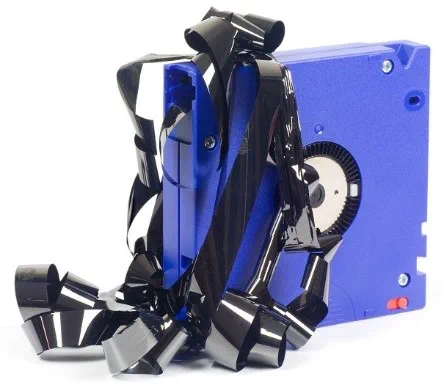
Moreover, it is important to take care of tape cartridges in order to ensure that they remain in an operational state as long as possible. Even though some tape cartridges can last up to thirty years, their state may significantly deteriorate without proper care and maintenance. If a tape gets damaged, you will not be able to retrieve the data it contains. To protect tape drives, you should do the following:
- Keep your tape cartridges in their boxes when not in use.
- Store tapes in a cool, dry place; do not expose them to direct sunlight or heat.
- Follow the manufacturer’s instructions when cleaning tape cartridges.
- Avoid storing tapes alongside electronic devices which can produce strong magnetic fields.
- Keep the record of existing tapes to know exactly where the required information is stored. Moreover, when transporting multiple tapes from across sites, you can be sure that no tape cartridges are left behind.

